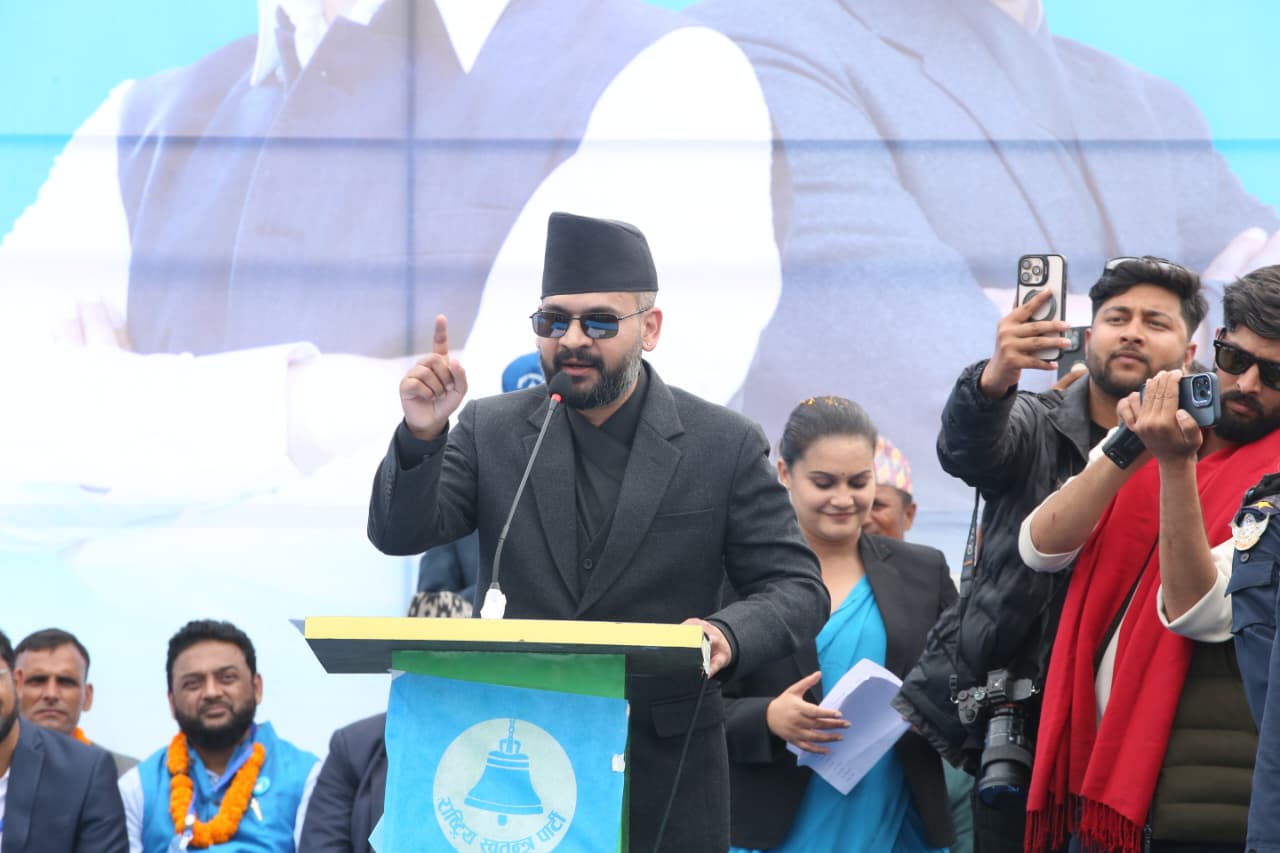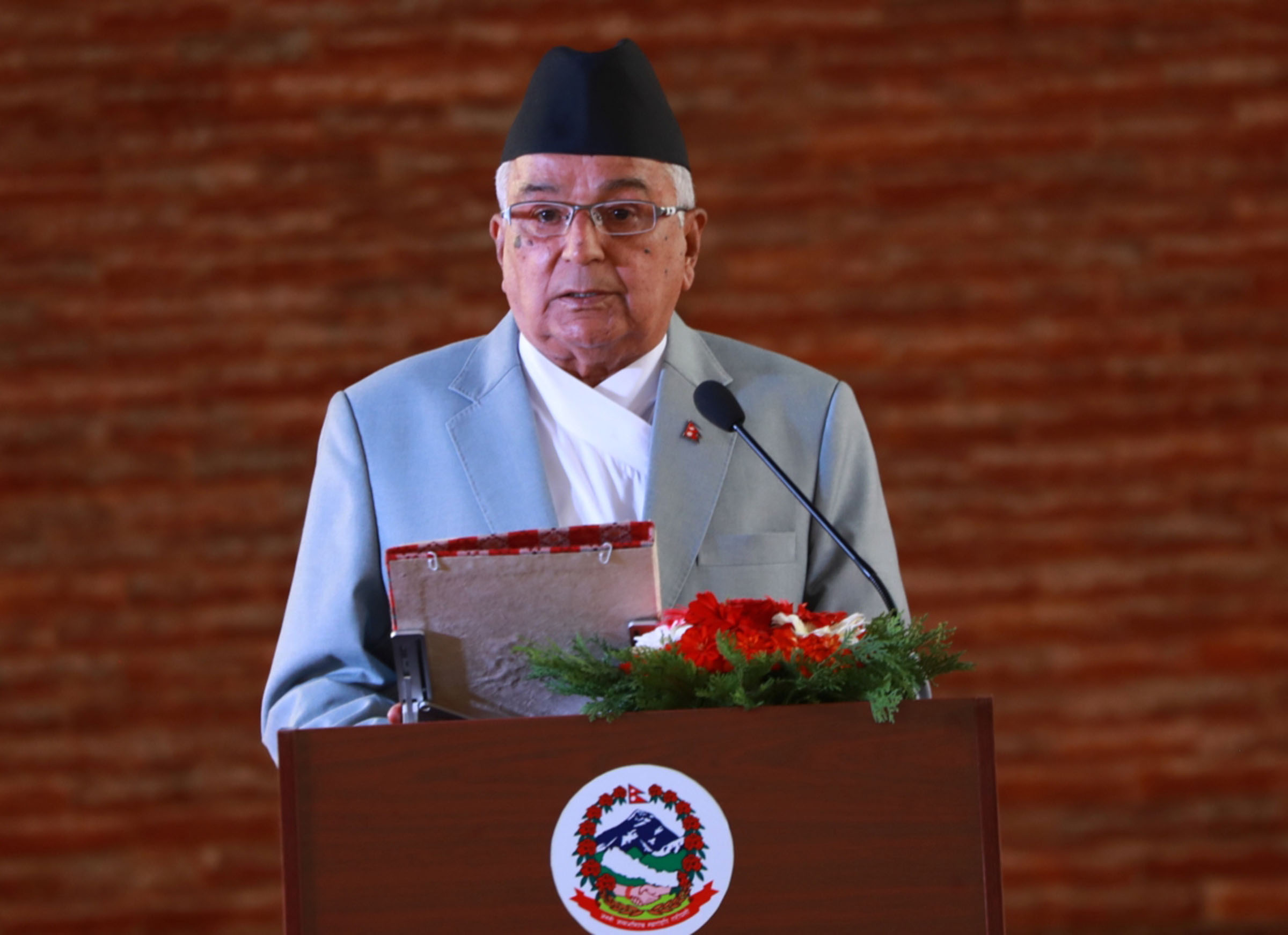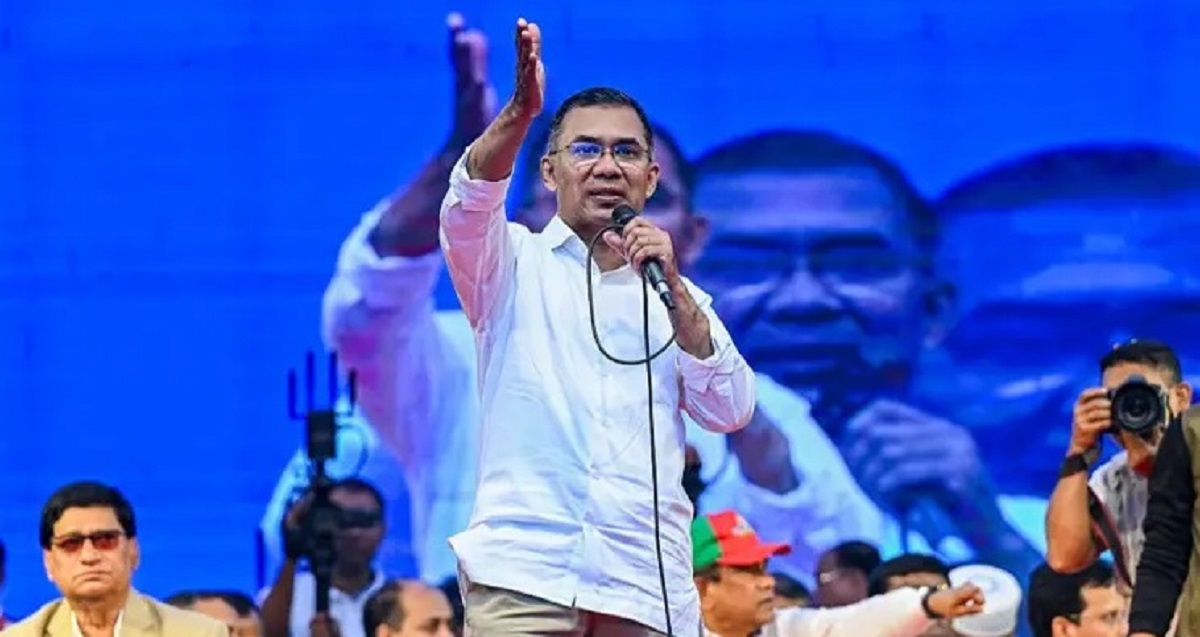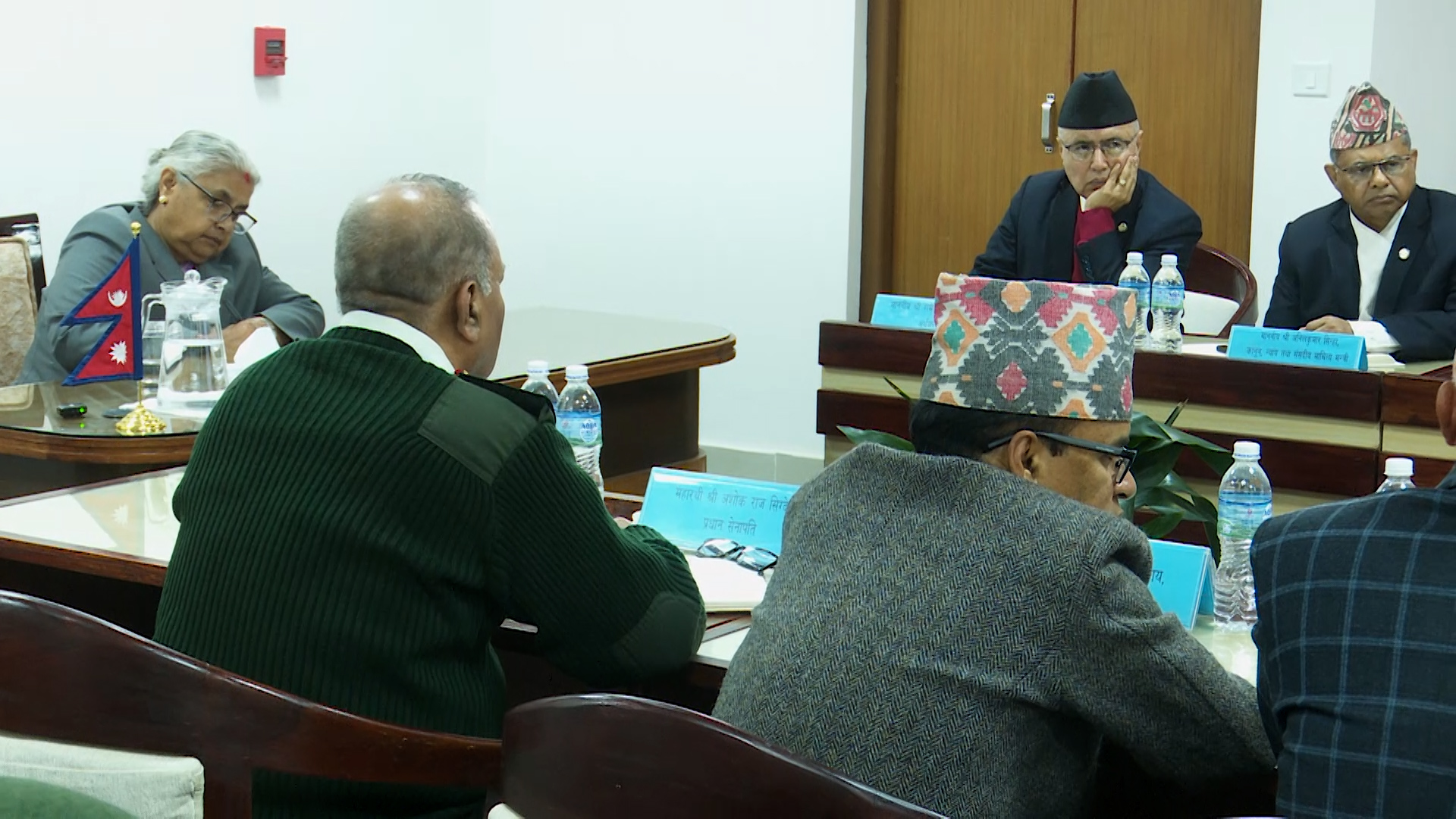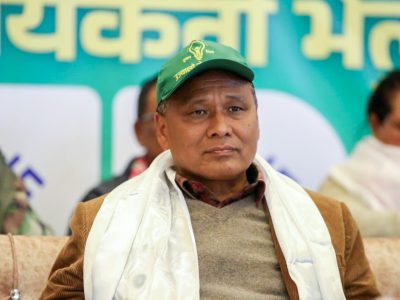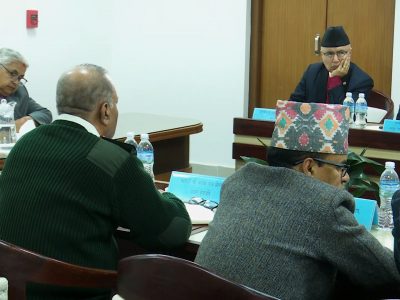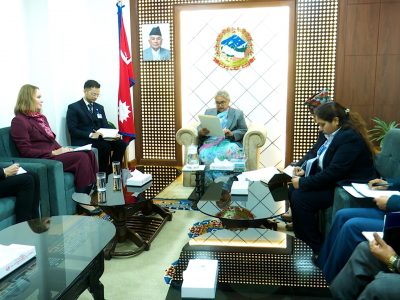Nepali prime minister’s mission to please India: Controversial citizenship bill approved, sparks fear before taking off to Delhi
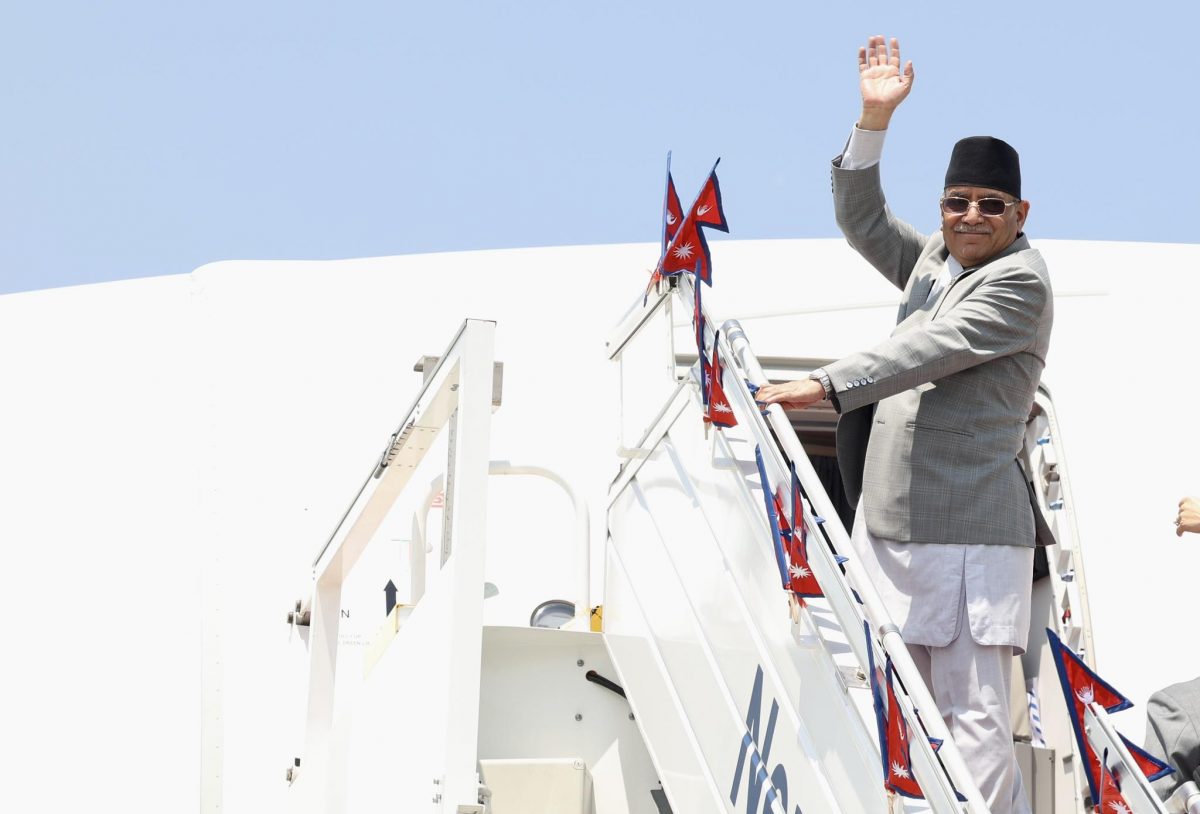
Kathmandu, May 31. In a controversial decision, the Nepali President Ramchandra Paudel has approved a Citizenship Bill that has received widespread criticism. The bill, which has been widely criticized, is believed to have been influenced by the Indian government, making it easier for Indian citizens to obtain Nepali citizenship. This approval, coinciding with the Prime Minister’s visit, raises concerns about the government’s commitment to safeguarding Nepal’s independence, sovereignty, and territorial integrity.
Recently, the Indian government presented a map in its parliament that claims Nepali territories as part of “Akhand India,” challenging Nepal’s sovereignty. This move has been heavily criticized for reflecting a colonial mindset and an oppressive approach towards neighboring countries. Given this situation, expectations were high that Prime Minister Dahal would prioritize Nepal’s interests by canceling his visit to Delhi.
However, Dahal’s decision to proceed with the visit indicates his support for India and raises concerns that he may have betrayed his own country, Nepal.
Unfortunately, this is not the first time the Prime Minister has been accused of prioritizing his relationship with India over the well-being of his own country. Such actions undermine trust and raise questions about his commitment to Nepal’s interests.
Furthermore, recent events have increased suspicions. President Paudel’s decision to grant amnesty to Resham Chaudhary, the main accused in the 2015 Tikapur massacre, has drawn criticism for being politically motivated. Investigations have revealed multiple connections between Chaudhary, the Tikapur Massacre, and India. This controversial move, combined with the President’s approval of the Citizenship Bill, intensifies concerns about political access and power interests shaping the government’s decisions.
The Nepali people have valid reasons to worry about the direction their country is heading. With the Prime Minister prioritizing his visit to India and the government seemingly focused on pleasing India, it raises the question of whether both the President and the Prime Minister have the right to govern an independent Nepal and its people.
The silence of the Nepali government regarding India’s provocative map release deepens suspicions about the government’s commitment to defending Nepal’s sovereignty. President Paudel, previously seen as a symbol of simplicity and an honest leader, now finds himself in controversy for accepting the government’s request to pass an old bill that the current parliament does not recognize.
The influence of the Indian government over Nepal’s affairs is becoming increasingly evident. Recent instances, such as the pressure to halt the purchase of Armed Personnel Carriers (APCs) from China and the transfer of hydropower projects to India, raise concerns about Nepal’s independence and decision-making autonomy.
It is important to remember that a sovereign government should not require its neighbor’s permission to engage in trade or purchase goods from another neighbor.
The Nepali people are fearing that Nepal’s interests might be compromised during Prime Minister Dahal’s visit to India. In such circumstances, it is crucial to question whether the Nepali people have the moral right to be governed by leaders who prioritize India’s interests over their own country’s.
The current situation calls for a thorough examination of Nepal’s stance towards India and a reaffirmation of its commitment to safeguarding sovereignty. The Nepali people deserve leaders who prioritize their well-being and protect their nation’s interests on the global stage.
Click here to read the original Nepali version of this article
Also Read,
Facebook Comment
latest Video
Trending News
- This Week
- This Month



